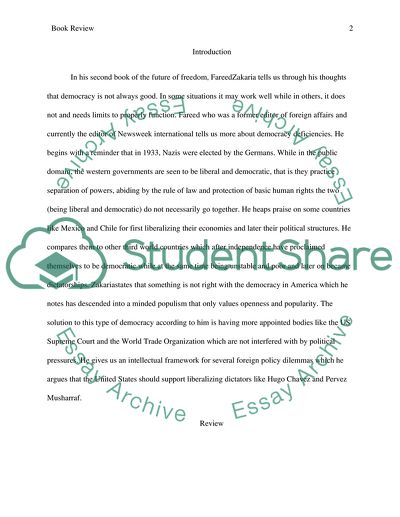Cite this document
(The Future of Freedom: Illiberal Democracy at Home and Abroad Book Report/Review - 3, n.d.)
The Future of Freedom: Illiberal Democracy at Home and Abroad Book Report/Review - 3. Retrieved from https://studentshare.org/social-science/1798050-book-report
The Future of Freedom: Illiberal Democracy at Home and Abroad Book Report/Review - 3. Retrieved from https://studentshare.org/social-science/1798050-book-report
(The Future of Freedom: Illiberal Democracy at Home and Abroad Book Report/Review - 3)
The Future of Freedom: Illiberal Democracy at Home and Abroad Book Report/Review - 3. https://studentshare.org/social-science/1798050-book-report.
The Future of Freedom: Illiberal Democracy at Home and Abroad Book Report/Review - 3. https://studentshare.org/social-science/1798050-book-report.
“The Future of Freedom: Illiberal Democracy at Home and Abroad Book Report/Review - 3”, n.d. https://studentshare.org/social-science/1798050-book-report.


